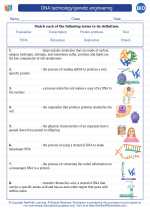Seed: Structure and Function
A seed is the reproductive structure of a flowering plant, containing the embryo, nutrients for the embryo, and a seed coat for protection. Seeds are essential for plant reproduction and propagation.
Structure of a Seed
A typical seed consists of several key parts:
- Seed Coat: The outer covering of the seed, providing protection from physical damage and pathogens.
- Embryo: The young, undeveloped plant within the seed, consisting of the embryonic root (radicle), shoot (plumule), and one or more cotyledons (seed leaves).
- Endosperm: Tissue that stores nutrients for the developing embryo, providing essential energy and nutrients for germination.
Functions of a Seed
Seeds serve several important functions in the life cycle of plants:
- Reproduction: Seeds are the means by which plants reproduce and produce offspring.
- Dispersal: Many seeds are dispersed by various means such as wind, water, or animals, allowing plants to colonize new areas.
- Protection: The seed coat provides protection from physical and biological damage, ensuring the survival of the embryo.
- Nutrient Storage: Seeds contain nutrients, such as starch and oils, which support the initial growth of the new plant.
Seed Germination
Germination is the process by which a seed begins to grow into a new plant. Key factors that influence germination include water, oxygen, and suitable temperature. During germination, the dormant embryo resumes growth, the seed coat may split, and the radicle emerges to form the root system, followed by the shoot.
Study Guide: Key Concepts
- Describe the structure of a seed and the function of each part.
- Explain the importance of seeds in the reproduction and survival of plants.
- Discuss the process of seed germination and the factors that influence it.
Understanding the structure and function of seeds is crucial for comprehending plant reproduction and the significance of seeds in the plant life cycle.
.◂Biology Worksheets and Study Guides High School. DNA technology/genetic engineering
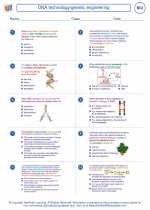
 Worksheet/Answer key
Worksheet/Answer key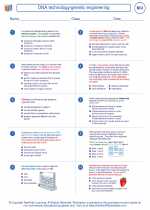
 Worksheet/Answer key
Worksheet/Answer key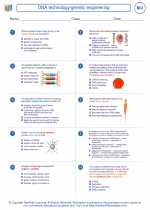
 Worksheet/Answer key
Worksheet/Answer key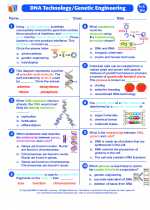
 Vocabulary/Answer key
Vocabulary/Answer key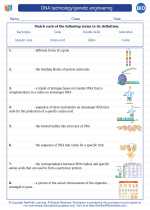
 Vocabulary/Answer key
Vocabulary/Answer key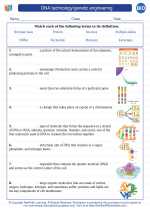
 Vocabulary/Answer key
Vocabulary/Answer key